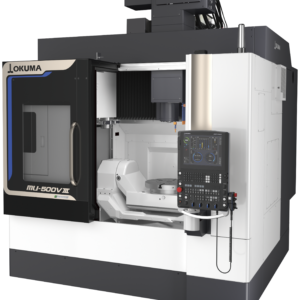ปัญญาประดิษฐ์ (AI) มีความก้าวหน้ามากขึ้น องค์กรก็มีความทะเยอทะยานที่จะเปิดรับนวัตกรรมของเทคโนโลยีด้วยเช่นกัน ด้วยเจตนารมณ์อันแรงกล้า แต่สิ่งที่ยังเป็นปริศนาอยู่ก็คือ จะต้องใช้ AI ในสเกลระดับใด เพื่อให้บรรลุผลลัพธ์ที่ดีที่สุด คำตอบก็คือ องค์กรต่างๆ จะต้องปรับใช้และปรับใช้การดำเนินการเรียนรู้ของเครื่องจักร (Machine Learning Operations: MLOps) ซึ่งมีความสามารถที่ครอบคลุมและอาศัยความร่วมมือจากหลายกลุ่มงานเพื่อให้เกิดคุณค่าและประโยชน์จากข้อมูล ความร่วมมือที่พูดถึงนี้รวมถึง กลุ่มสร้างผลิตภัณฑ์ทางธุรกิจ วิศวกรรมข้อมูล วิทยาศาสตร์ข้อมูล ไอที และโครงสร้างพื้นฐาน โดยมีเป้าหมายร่วมกันที่จะสร้างมูลค่าจากการวิเคราะห์ที่ขับเคลื่อนด้วยข้อมูล

การเตรียมข้อมูลถือเป็นส่วนสำคัญของ ML หากต้องการปรับใช้ ML อย่างเต็มรูปแบบ ข้อมูลจะต้องอยู่ในรูปแบบที่ถูกต้อง ML ต้องการข้อมูลจำนวนมาก จึงจะมีประสิทธิภาพ ซึ่งการรวบรวม การจัดการ และการจัดเก็บล้วนใช้เวลา โมเดล AI ต้องการข้อมูลคุณภาพสูงที่ได้รับการดูแลอย่างดีมีการปรับแต่งอย่างเหมาะสม อาจเป็นเรื่องท้าทายในทางปฏิบัติ อย่างเช่นธุรกิจในอุตสาหกรรมบริการทางการเงิน ที่ข้อมูลมักมีจำนวนมาก จัดเก็บไว้ในรูปแบบเดิมตั้งเดิม ยากต่อการรวบรวมและการใช้งานกับโมเดล ML สมัยใหม่ รูปแบบข้อมูลดั้งเดิมขององค์กรก็คือฐานข้อมูล ไฟล์ และระบบจัดเก็บข้อมูลที่ไม่มีโครงสร้างซึ่งยากต่อการใช้งาน ในบางองค์กรนั้น ข้อมูลที่จะนำมาใช้กับโมเดล ML มีความซับซ้อนและยุ่งยาก เช่นพบว่า มีข้อมูลที่ผิดปกติ บ้างก็สูญหาย และความผิดปกติอื่นๆ การแปลงข้อมูลเกี่ยวข้องกับขั้นการเตรียมข้อมูลก่อนประมวลผล ซึ่งอาจใช้เวลานาน

การนำระบบการเรียนรู้ของเครื่อง (MLOps) มาใช้งานนั้น องค์กรต่างๆ จำเป็นต้องมีความเชี่ยวชาญในการออกแบบวิธีการใช้ประโยชน์ และมีวิธีการสนับสนุนการใช้งานระบบในระดับวัฒนธรรม ทักษะแรงงานนี้ยังเป็นเรื่องใหม่ และหลายองค์กรยังขาดแรงงานที่มีทักษะที่จำเป็น ความต้องการแรงงานด้านเทคนิคมีแนวโน้มยังคงมีอยู่ในห้าปีข้างหน้า โดยวิศวกร MLOps และสถาปนิกด้านไอทีในอุตสาหกรรมต่างๆ คาดว่าจะเป็นที่ต้องการสูงเป็นพิเศษ ข้อมูลจาก Deloitte แสดงให้เห็นว่า 26% ขององค์กรขาดวิศวกร MLOps และ 28% ต้องการสถาปนิกไอทีเพิ่มขึ้น สิ่งนี้แสดงให้เห็นถึงช่องว่างทักษะทางเทคนิคที่จำเป็นในการพัฒนา MLOps เพื่อขยายขีดความสามารถของ AI การจะเป็นผู้นำจำเป็นต้องเปลี่ยนแปลงวัฒนธรรม เพื่อปรับปรุงแนวทางดำเนินการทางธุรกิจ เพื่อรวมความสามารถของ MLOps ในทุกด้านของการดำเนินธุรกิจ ไม่ใช่แค่เพื่อทำงานชั่วครั้งชั่วคราว

มีเทคโนโลยีจำนวนมากที่พร้อมใช้ องค์กรที่ต้องการลงทุนในขีดความสามารถ MLOP สามารถเลือกสรร แม้บริการคลาวด์จะนำมาใช้ในองค์กรอย่างกว้างขวาง แต่ผลการสำรวจพบว่ามีการนำเทคโนโลยีอื่นๆ เช่น ออลอินวันและแพลตฟอร์ม MLOps เฉพาะทางอื่นๆ มาใช้ด้วยเช่นกัน อย่างไรก็ตาม อัตราการใช้งานก็ยังนับว่าช้าอยู่ เนื่องจากองค์กรส่วนใหญ่ให้ความสำคัญกับ AI ทั้งนี้องค์กรต่างๆ กำลังวางแผนลงทุนจำนวนมาหาศาลเพิ่มเติมในหลากหลายเทคโนโลยีในอนาคตอันใกล้นี้

โครงสร้างพื้นฐานด้านเทคโนโลยีแบบเดิมคือหนึ่งในความท้าทายสามอันดับแรก ซึ่งอยู่รองจากข้อจำกัดด้านข้อมูลและทางเทคนิค และทุนสำหรับการลงทุนที่สูง เห็นได้อย่างชัดเจนโดยเฉพาะในอุตสาหกรรมเทคโนโลยี สื่อ และโทรคมนาคม (TMT) การเปลี่ยนจากระบบมีค่าใช้จ่ายสูงและใช้เวลานาน แต่เป็นความจำเป็น เพื่อให้เกิดการพัฒนาไปสู่องค์กรที่มีเทคโนโลยี AI ที่สมบูรณ์ สิ่งนี้แสดงให้เห็นถึงความเสี่ยงขององค์กรต่างๆ ที่ใช้ AI โดยไม่มีโครงสร้างพื้นฐานเพื่อป้องกันความล้มเหลวของระบบ ซึ่งอาจเกิดผลกระทบในวงกว้าง ภาคส่วนที่จะเกิดผลกระทบรุนแรงที่สุดจากความล้มเหลวของระบบ คือภาครัฐและบริการสาธารณะ 36% ที่เป็นเช่นนี้ก็เพราะโครงสร้างพื้นฐานในปัจจุบันของภาคส่วนนี้ยังไม่ตรงตามข้อกำหนดด้านเทคนิคของ MLOps สำหรับงานบริการทางการเงิน มีรายงานว่าสองในสามองค์กรขนาดใหญ่ (มูลค่ากว่า 5 พันล้านดอลลาร์สหรัฐ) มีโครงสร้างพื้นฐานไม่ตรงตามข้อกำหนดในปัจจุบัน

AI พัฒนาไปอย่างรวดเร็ว เทคโนโลยีๆ ใหม่จะถูกนำมาใช้ประโยชน์โดยองค์กรที่มีความความสามารถในการแข่งขันสูง พร้อมที่เพิ่มขีดความสามารถทางด้าน AI และจะเผชิญกับความท้าทายที่ MLOps มอบให้ องค์กรควรตั้งเป้าหมายที่จะพัฒนาขีดความสามารถ MLOps ให้มากเท่าที่จะทำได้ ซึ่งก็คือเอาชนะอุปสรรคที่มาจาก การปรับปรุงข้อมูล โครงสร้างพื้นฐานที่ล้าหลัง และการขาดการลงทุน องค์กรจะต้องตระหนักถึงความสำคัญของปัจจัยด้านกฎระเบียบ ลดความเสี่ยงให้เหลือน้อยที่สุด เป็นผลให้เพิ่มความเชื่อมั่นของผู้บริโภคและนักลงทุน ความเชี่ยวชาญและแรงงานด้าน ML จะทำให้องค์เข้าถึงและได้รับประโยชน์ของเทคโนโลยีซึ่งีควรดำเนินการทันที ดังนั้น MLOps ถือเป็นกุญแจสำคัญในการปลดล็อกศักยภาพอันมหาศาลของการใช้ระบบ AI ซึ่งจะนำพาองค์กรไปสู่การเติบโตในอนาคต
Article by: Asst. Prof. Suwan Juntiwasarakij, Ph.D., Senior Editor & MEGA Tech












